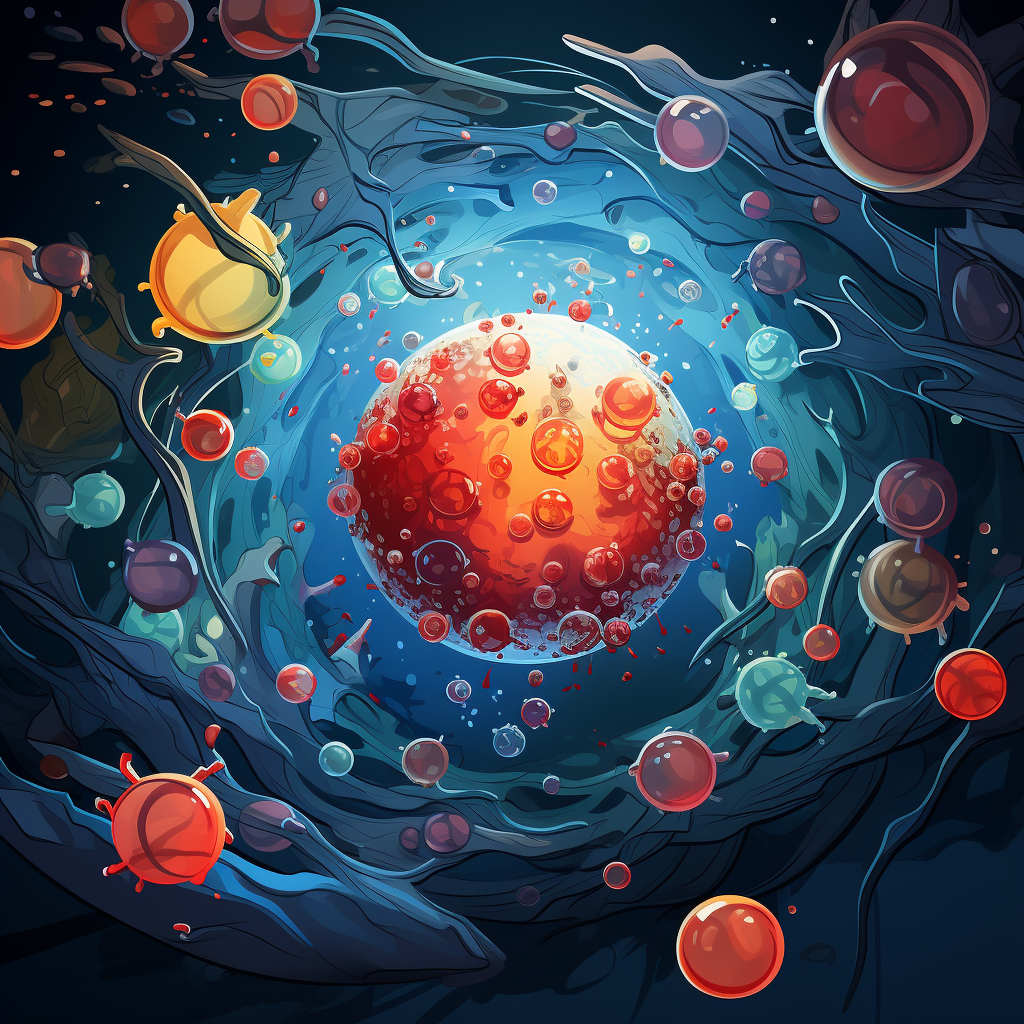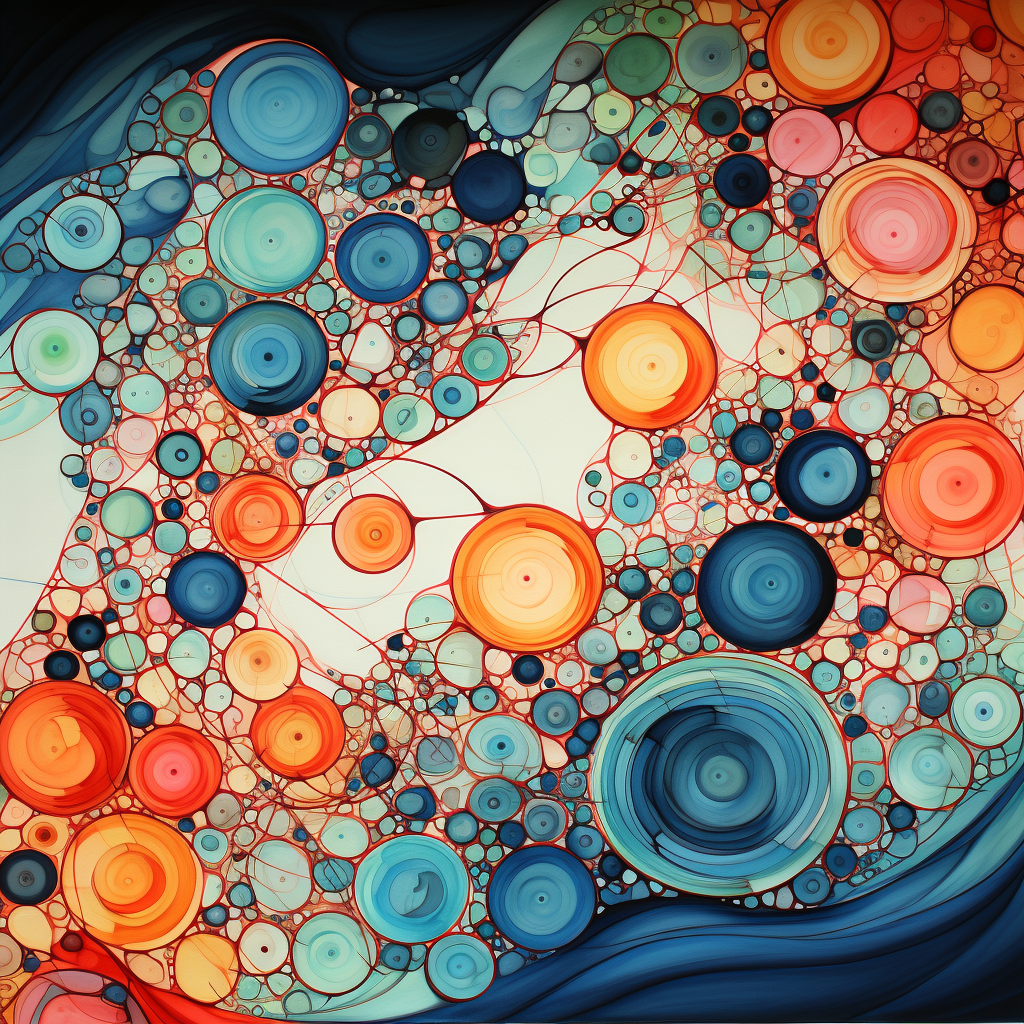Title: The Birth of Life: Tracing the Origins of the Single Cell
Introduction
The origin of life on Earth is one of the most fascinating and complex mysteries that science has yet to unravel. The building blocks of life are cells, and understanding the emergence of the first single-celled organisms is a crucial step towards comprehending how life began and evolved on our planet. This article explores the current theories and evidence that point to the earliest stages of life‘s development, focusing on the birth of the single cell.
The Primordial Soup
One of the most widely known and long-standing concepts is the “primordial soup” theory, which suggests that life emerged from a rich, organic mixture of molecules in the Earth’s early oceans. This idea dates back to the 1920s, when scientists Alexander Oparin and J.B.S. Haldane independently proposed that the conditions on early Earth allowed for the formation of simple organic molecules, such as amino acids, which could then combine to form more complex structures, eventually leading to the first living cells.
The Miller-Urey Experiment
Support for the primordial soup theory came in the 1950s when Stanley Miller and Harold Urey performed a groundbreaking experiment that simulated the conditions of early Earth. They combined water, methane, ammonia, and hydrogen in a sealed flask and applied an electric charge to mimic lightning. The results were astounding – the experiment produced amino acids, the building blocks of proteins, which are essential components of living cells. This demonstrated that the basic ingredients for life could be synthesized under conditions that may have existed on early Earth.
The RNA World

Another key aspect of understanding the birth of the single cell is determining how these organic molecules could have self-replicated and evolved into more complex structures. The RNA world hypothesis posits that RNA, a molecule with both genetic and catalytic functions, played a central role in the development of life. This theory suggests that RNA molecules could have formed spontaneously and acted as both a genetic code and a catalyst for chemical reactions required for life. Over time, these RNA molecules would have evolved and become more complex, eventually leading to the formation of DNA and proteins.
Hydrothermal Vents and the Emergence of Cells
The environment in which the first cells emerged is another crucial factor in understanding the birth of life. One widely accepted theory is that life began in deep-sea hydrothermal vents. These underwater structures release mineral-rich fluids that could provide the necessary nutrients for the formation of life. Additionally, the temperature gradients in these vents could have facilitated the formation of lipid membranes, which are essential components of cells. These lipid membranes could have encapsulated the primitive genetic material and various biochemical reactions, giving rise to the first single-celled organisms.
The Last Universal Common Ancestor (LUCA)
The first cells that emerged on Earth eventually evolved into the diverse array of lifeforms we see today. Scientists believe that all living organisms can trace their lineage back to a single common ancestor, known as the Last Universal Common Ancestor (LUCA). While the exact nature of LUCA remains a mystery, genomic studies suggest that it was likely a single-celled organism with a simple metabolism that relied on hydrogen, carbon dioxide, and nitrogen. As life continued to evolve, cells diversified and developed more complex structures and functions, eventually giving rise to the multitude of species that populate our planet.
The birth of the single cell is a monumental moment in the history of life on Earth. While the exact details of how these first cells emerged remain elusive, the combination of the primordial soup theory, RNA world hypothesis, and hydrothermal vent environments provide a compelling framework for understanding the origins of life. As scientific research and technology continue to advance, our understanding of this extraordinary event will undoubtedly deepen, shedding light on one of the most profound mysteries of our existence.
Navigating the Complexities of Modern Society

Modern society is a rapidly changing landscape, with technological advancements, cultural shifts, and evolving social structures continuously reshaping the world we live in. This constant state of flux can make navigating the complexities of contemporary life a daunting task, but it also presents countless opportunities for personal growth, career development, and cultural enrichment. In this comprehensive guide, we will explore the key challenges of modern society and offer practical advice for overcoming them, as well as discussing the myriad of opportunities that await those who can successfully navigate this brave new world.
1. Technology and the Digital Age
One of the most significant challenges of modern society is the pervasiveness of technology and its impact on our daily lives. From smartphones and social media to artificial intelligence and automation, the digital age has made communication and information sharing faster and more accessible than ever before. However, this increased connectivity can also lead to feelings of isolation, addiction, and information overload.
To make the most of technology while avoiding its pitfalls, consider the following strategies:
– Set boundaries: Establish limits on how much time you spend on your devices and social media, and prioritize face-to-face interactions with friends and family.
– Cultivate a healthy online presence: Be mindful of the content you share and consume on social media, and engage in online communities that support your personal and professional goals.
– Stay informed: Keep up-to-date with technological advancements and digital trends, and educate yourself on the tools and platforms that can enhance your productivity and well-being.
2. Cultural Diversity and Globalization
As the world becomes increasingly interconnected, it is vital to understand and appreciate the diverse cultures and perspectives that make up our global community. This can be both challenging and rewarding, as it requires us to confront our own biases, beliefs, and values, while opening ourselves up to new ideas and experiences.
To embrace cultural diversity and navigate the complexities of globalization, consider the following strategies:
– Travel and explore: Broaden your horizons by visiting new countries, attending cultural events, and participating in exchange programs.
– Learn new languages: Mastering a foreign language can improve your cognitive skills, enhance your employability, and deepen your understanding of other cultures.
– Stay informed about global issues: Stay up-to-date with current events and educate yourself on the social, political, and economic factors that shape the world we live in.
3. Work-life Balance and Career Development
Achieving a healthy work-life balance has become increasingly challenging in today’s fast-paced, competitive job market. Many people struggle to maintain a fulfilling professional life while also nurturing their personal relationships, hobbies, and well-being.
To create a sustainable work-life balance and advance your career, consider the following strategies:
– Prioritize self-care: Make time for exercise, relaxation, and hobbies that help you recharge and maintain a healthy mental and emotional state.
– Set realistic goals: Break down your long-term objectives into smaller, manageable tasks, and celebrate your accomplishments along the way.
– Network and collaborate: Build a strong professional network by attending industry events, joining online forums, and collaborating with colleagues on projects.
4. Environmental Sustainability and social Responsibility
As global citizens, we have a responsibility to protect our planet and contribute to the well-being of our communities. This involves making conscious choices about how we consume resources, manage waste, and support local businesses and organizations.
To live a more sustainable and socially responsible life, consider the following strategies:
– Reduce, reuse, recycle: Minimize your environmental impact by using reusable products, recycling waste, and conserving energy and water.
– Support ethical businesses: Research the companies you purchase from and choose those that prioritize fair labor practices, environmental sustainability, and community engagement.
– Volunteer and donate: Give back to your community by participating in local projects, donating to charitable organizations, and supporting social causes that align with your values.
Conclusion

Navigating the complexities of modern society may seem overwhelming, but by cultivating a healthy relationship with technology, embracing cultural diversity, maintaining a work-life balance, and living sustainably, you can overcome the challenges and seize the opportunities that this ever-changing world has to offer. With the right mindset and strategies, you can thrive in the modern age and contribute to the betterment of our global community.
Join Our Discord HERE for Free Art and NFT Game Items
🌐 https://discord.gg/4KeKwkqeeF
🚤 https://opensea.io/EyeOfUnity
🎭 https://rarible.com/eyeofunity
🍎 https://magiceden.io/u/eyeofunity
Other Websites by Eye of Unity:
https://eyeofunity.com
https://meteyeverse.com
https://000arcade.com
https://00arcade.com
https://0arcade.com
https://wealth-financing.com
https://techgenstore.com
https://systementcorp.com
https://affiliatesbonus.com
https://albertbrain.com
https://lastdaystore.com
https://controlsecret.com
https://realufopics.com
https://officialmikemc.com
https://keyselfdefense.com
https://ashleymega.com

